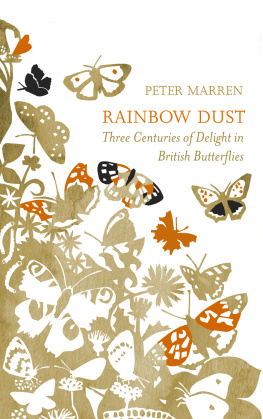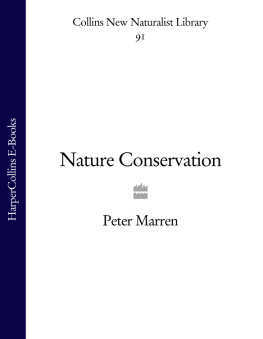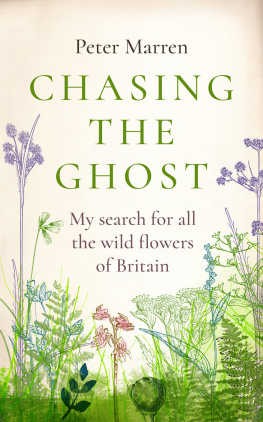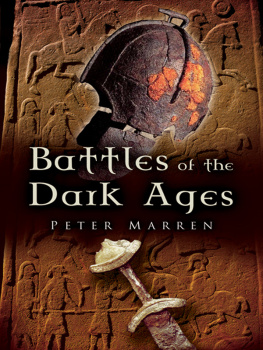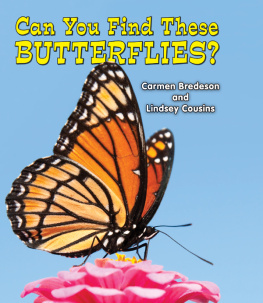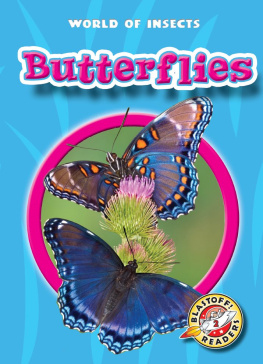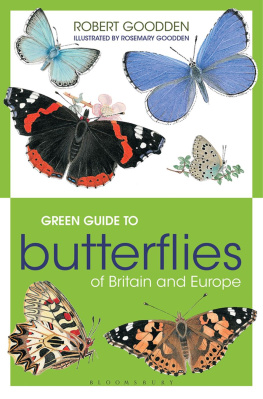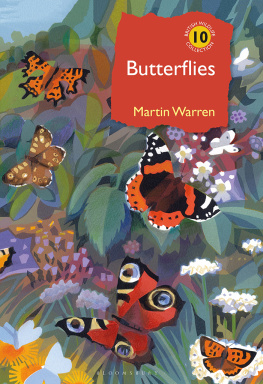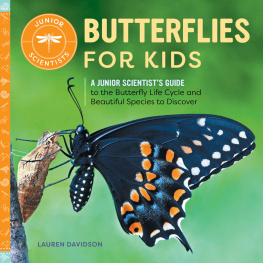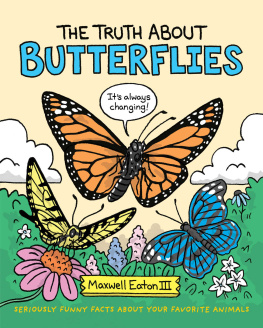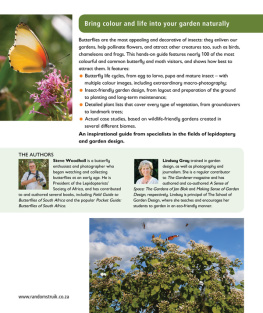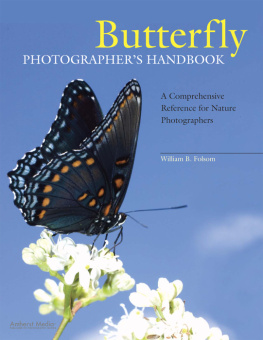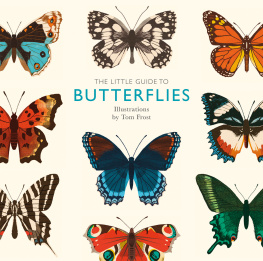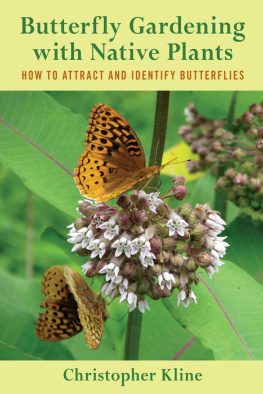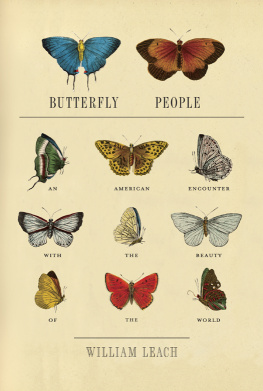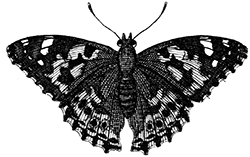Contents

About the Book
Much more than just another field guide or a natural history of butterflies Rainbow Dust explores the ways in which butterflies delight and inspire us all, naturalists and non-naturalists alike. In this uniquely eloquent and deeply personal book, naturalist Peter Marren explores the special place that butterflies hold in our hearts, in our cultural lives and in our imagination, and recalls his own lifetimes relationship with these ephemeral creatures, beginning with his own experience of hunting and rearing butterflies as a boy.
Rainbow Dust is a celebration of butterflies; one shot through with a sense of wonder but also of sorrow at what we are losing.
About the Author
Peter Marren is a wildlife writer, journalist and authority on invertebrate folklore and names. His books include The New Naturalists, which won the Society for the History of Natural Historys Thackray Medal, Britains Rare Flowers, which won the Botanical Society of the British Isles Presidents Award. He won a Leverhulme Research Fellowship for work on Bugs Britannica.
This ebook is copyright material and must not be copied, reproduced, transferred, distributed, leased, licensed or publicly performed or used in any way except as specifically permitted in writing by the publishers, as allowed under the terms and conditions under which it was purchased or as strictly permitted by applicable copyright law. Any unauthorized distribution or use of this text may be a direct infringement of the authors and publishers rights and those responsible may be liable in law accordingly.
Epub ISBN: 9781448190195
Version 1.0
1 3 5 7 9 10 8 6 4 2
Square Peg, an imprint of Vintage Publishing,
20 Vauxhall Bridge Road,
London SW1V 2SA
Square Peg is part of the Penguin Random House group of companies whose addresses can be found at global.penguinrandomhouse.com.

Copyright Peter Marren 2015
Excerpt from PALE FIRE by Vladimir Nabokov. Copyright 1962, Vera Nabokov and Dmitri Nabokov, used by permission of The Wylie Agency (UK) Limited.
Excerpt from Autumn by Philip Larkin from Collected Poems (Faber and Faber, 1988). Copyright 1988 by the estate of Philip Larkin. Line quoted by the permission of the publisher.
Excerpt from Blue-Butterfly Day by Robert Frost from the book THE POETRY OF ROBERT FROST edited by Edward Connery Lathem. Copyright 1923, 1969 by Henry Holt and Company. Copyright 1951 by Robert Frost. Reprinted by arrangement with Henry Holt and Company, LLC.
Peter Marren has asserted his right to be identified as the author of this Work in accordance with the Copyright, Designs and Patents Act 1988
First published by Square Peg in 2015
www.vintage-books.co.uk
A CIP catalogue record for this book is available from the British Library
For Emma and Claire Garnett
A Note on the Illustrations
The images of butterflies at the head of each chapter were taken from Papilionum Britanniae Icones by James Petiver (1717) and An Illustrated Natural History of British Butterflies by Edward Newman (1871).
INTRODUCTION
The Painted Lady
All ones butterfly memories are sunny ones, bright pictures in the mind which colour the dark days of winter.
BB (D ENYS W ATKINS -P ITCHFORD ), Ramblings of a Sportsman-Naturalist (1979)
My friend Rosemary was a farmers daughter. She was six and I was five and so we were old enough to be let loose in the big walled garden. We zoomed about on our trikes, took turns to push each other on the big swing-seat and played dodge-and-dare with the lawn sprinkler. It was hot. I faintly remember the heat shimmer and the baking orange bricks of the wall and the fragrance of honeysuckle. But one moment, which was over and done with in less than a minute, remains stuck in my head like a freeze-frame. I caught a butterfly. That was all. A brown-and-white butterfly. I remember it, I think, partly because it reminded me that I was short-sighted. At that time I hadnt told anyone. It was a secret I intended to keep for as long as possible and in the meantime I had grown used to seeing the world in soft focus. Fellow myopics will know what it is like when something suddenly swims into view inches from your face. It comes up at you, first in the usual blur and then quite suddenly snaps into focus revealing its form, its solidity, its hard-edged outline. Over perhaps a second this butterfly changed from a formless motion to a soft, fawn-coloured blur. And then, as it settled and flattened its wings against the hot brickwork, it turned into a Painted Lady. It had flesh-brown wings flushed with salmon-pink in a pretty latticework of black, like a glimpse of a sunset through a thorn bush. The black tips of its forewings contained a circlet of white spots, like dabs of snow melting on a slate. I knew right away what it was. I was keen on nature even at that age. I picked up shells and bladderwrack from the cold Yorkshire beach, and on the white-painted ledge of the kitchen window was a jar of tadpoles which I hoped would one day turn into frogs. But I had never taken much notice of butterflies before, mainly because I couldnt see them. I liked this one, and, like any 5-year-old, my first impulse was to try and catch it.
Young children learn things without conscious effort. They are hard-wired genetically to learn fast when little. I thirsted for knowledge, not in order to survive in a dangerous world like our cavemen ancestors, but for its own sake. I was starting to find the natural world a thrilling place, full of wonders and shocks. In the 1950s the commercial world came to the aid of boys like me by offering amazing facts on the backs of matchboxes and cereal boxes, or on the wildlife cards given away with every packet of tea. Even comics often managed to sneak something about animals or the planets in between Tough of the Track and Roy of the Rovers. Maybe my unconscious absorption of the names of butterflies came from there or perhaps from one of those big educational books you got for your birthday with titles like The Wonderland of Knowledge or The Adventure Book for Boys.
The hands of 5-year-olds are damp and clumsy. When the butterfly slithered and shot out from between my fingers, I noticed that some of its colours had been left behind on my sweaty palm, like the imprint of a chalk drawing. I held my hand up to the sun and watched the particles shine and flicker: orange, yellow and black, in shimmery, summery specks. Look! I yelled. Rosemary tricycled over and looked. Its like transfers! There was a craze just then for transferable film which came in penny sheets and which you could stick on to your arm like tattoos. No, she disagreed. Its smudgier than transfers. Its butterfly dust. Angel dust! I rubbed the tiny scales together with my finger, mixing up the colours into a mud-like smear. A few sparks still glinted from my fingertip. Rainbow dust, I said at last. Thats what it is. Rainbow dust.
It was, I realise now, a Nabokov Moment. Of all the inconsequential things that happened to me when I was 5 falling down the rockery, piling cold Yorkshire sand into my Mickey Mouse bucket, snivelling over my uneatable school dinner this one stays bright after all the others have faded. Vladimir Nabokov was the great Russian-born novelist, author of

